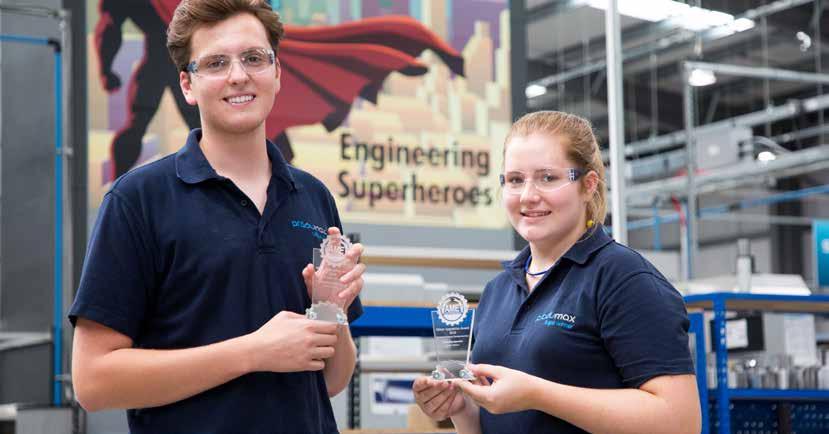
2 minute read
Strategic Technology and Innovation Management (STIM) Consortium
“When applied correctly and in a context-appropriate manner, these apps can promote better patient experience, involvement and treatment outcomes.”
However, four in every five health apps fail, explains Dev, often because they don’t adequately consider their users’ reality. Firms struggle to accurately identify user needs early on in the “fuzzy” front end of the innovation process:
Advertisement
“Most firms struggle with innovation. An overly technology-driven focus often results in a failure to account for real-world complexities, such as understanding users, their behaviours and, most importantly, their unmet needs. This then limits design quality (influencing inclusivity and usability) and overall downstream acceptance of the app.
“Firms typically incorporate user feedback no earlier than concept development, or later in iterative solution refinement, or worse, once the solution has been developed. Unsurprisingly, inherent bias accumulates and results in something that users cannot relate with.”
Dev is therefore looking at ways to help firms better identify user needs early on in health app development.
“By combining aspects of frontend innovation management, open innovation and design thinking principles, our research investigates the role of early-stage user involvement in reducing uncertainty in need identification in health app development, along with key issues – enablers and barriers – in involving users early on in innovation. We are adopting a mixed-method qualitative research strategy for a deeper insight into this phenomenon,” he explains.
He hopes that the findings from his work can help firms reduce uncertainty in their innovation efforts and improve their user-centric digital health innovation ability.
Manufacturing a better world
Dev says his research will contribute to IfM’s unifying vision of “manufacturing a better world”, alongside ongoing contributions in the institute to improve affordable and accessible healthcare. These include Professor Ronan Daly and his team’s work on identifying existing technologies, such as mobilephone touchscreens, for diagnostic and therapeutic purposes; the work of IfM’s Cambridge Service Alliance on a patient-centric, wearablebased therapeutic intervention (and its business model framework) for childhood cancer; and IfM Engage’s work with The William Templeton Foundation for Young People’s Mental Health on addressing early intervention and self-care needs in young people’s mental health.
Devmalya Sarkar ds764@cam.ac.uk
Why Join
Develop your knowledge of managing technology and innovation through joining this Institute for Manufacturing network. Gain insights across topics including understanding emerging industry and technology trends, technology sourcing, assessing the value of new technology to the business and selecting the most appropriate investments. Apply the latest thinking to enable innovation and improve strategic decision making in your organisation.
Benefits
• Access to a network of firms from a range of industry sectors to share experience through a regular series of consortium meetings
• Preferential access to leading STIM knowledge from collaborating academic participants, from the University of Cambridge and beyond
• Opportunities to benefit from projects through engagement as well as the transfer and application of methods developed
• Unconstrained perpetual license to use the deliverable pack
“If you have a hunch that you have a problem or something that you want to do better in your company… STIM is a really good place to come because you can come with your problems and you can formulate them together with your peers and then have researchers help you to solve them”.
Christian Rasmussen, Head of Technology,
Cooling
as a Service, Grundfos
Member companies include: Arçelik, Audi, BP, Dstl, GSK, High Value Manufacturing Catapult, IHI, Johnson Matthey, MARS, Nuclear
Authority,









